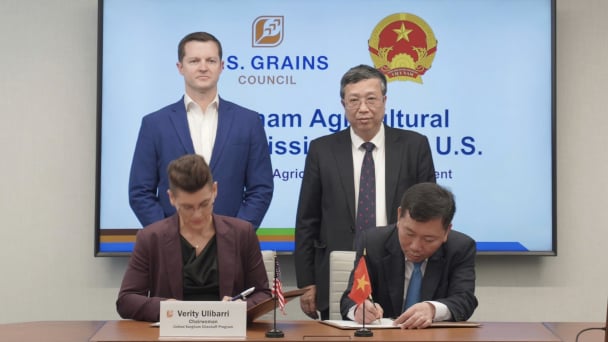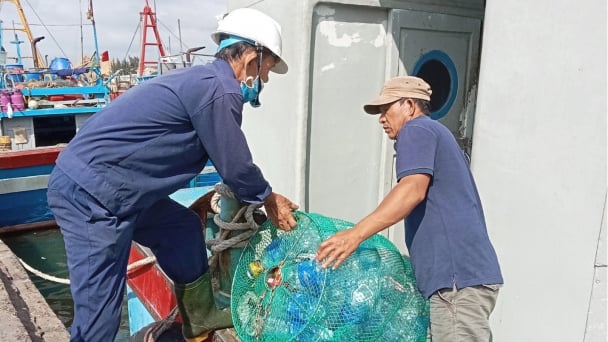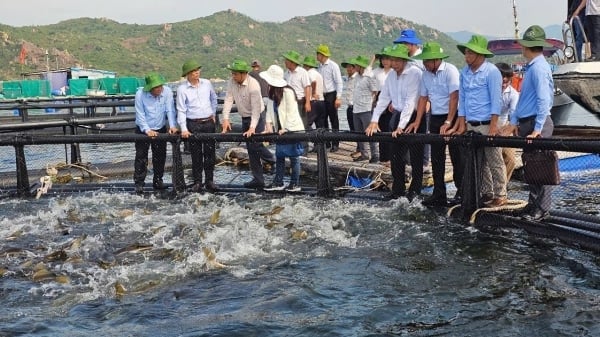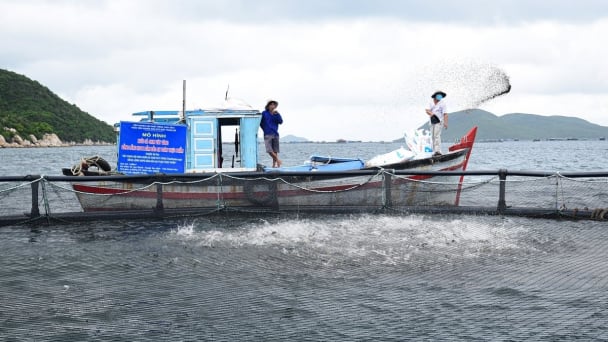June 8, 2025 | 14:13 GMT +7
June 8, 2025 | 14:13 GMT +7
Hotline: 0913.378.918
June 8, 2025 | 14:13 GMT +7
Hotline: 0913.378.918

Glyphosate has been associated with numerous other health problems in humans, including other types of cancers, heart disease, diabetes, kidney disease, and reproductive problems.
A new study by Stanford University researchers found that more than 20 types of pesticides, such as the herbicides 2,4-D and glyphosate — two of the most commonly used in agriculture — may significantly elevate the risk of prostate cancer.
According to The New Lede, researchers studied the link between the amount of pesticides sprayed in counties throughout the United States and prostate cancer rates 14 years after the chemicals were used.
The findings revealed that close to two dozen of these agrochemicals were repeatedly attributed to a higher risk of prostate cancer, which kills about 1 in 44 men, per the American Cancer Society. Not only is it the most prevalent form of cancer in American men, but it's also the second-deadliest, behind only lung cancer.
Glyphosate has been associated with numerous other health problems in humans, including other types of cancers, heart disease, diabetes, kidney disease, and reproductive problems.
The World Health Organization's International Agency for Research on Cancer has classified glyphosate as "probably" carcinogenic and 2,4-D as "possibly" carcinogenic to humans. Furthermore, The New Lede reported that six other chemicals investigated by the research team are considered "potential human carcinogens" by the Environmental Protection Agency.
Even more concerning, three herbicides — cloransulam‐methyl, diflufenzopyr, and trifluralin — and the insecticide thiamethoxam were linked to a higher risk of developing prostate cancer and a greater chance of dying from exposure to them.
Pesticides are ubiquitous in our global food systems, with an estimated 3.85 million tons of the chemicals used on crops worldwide in 2020, according to one study.
Not only do these toxic chemicals pollute the water, air, and soil and damage ecosystems, but they're also increasingly being linked to a plethora of health problems in humans — including prostate cancer. The more pesticides and herbicides we use for our food supply, the greater the risk to people's health and the environment.
Unfortunately, more farmers have been using 2,4-D in recent years as certain plant species have developed a resistance to other herbicides, such as glyphosate, according to The New Lede. Researchers discovered that this herbicide was consistently associated with prostate cancer, which is troubling since it's so frequently used, as Stanford professor of urology and nephrology John Leppert explained.
He told The New Lede it's a "tremendous health concern" since prostate cancer is so prevalent and can be difficult to treat.
"I think we need to be more aware of considering that what's in the environment could be a contributor to a man's risk of cancer," he added.
Fortunately, the insecticide parathion — one of the chemicals most strongly linked to a higher risk of prostate cancer — has been banned in the U.S. and many other countries, signifying a step in the right direction. In addition, Vermont and New York have banned a particularly harmful class of pesticides called neonicotinoids, which will benefit the survival of bees and butterflies and, in turn, protect our food supply.
However, the findings show that more extensive research on how pesticides impact the development and severity of various cancers is "urgently needed," the authors explained.
"Many pesticides have not been sufficiently studied for their potential carcinogenic effects, particularly in relation to prostate cancer," study co-author and Stanford postdoctoral researcher Simon Soerensen told The New Lede.
Meanwhile, we can do our part individually by growing our own food and controlling pests and weeds without chemicals.
TCD

(VAN) The U.S. Grains Council signed a 5-year cooperation agreement with the Partnership for Sustainable Agriculture in Vietnam (PSAV) during MAE's agricultural trade mission.

(VAN) Vietnam Agriculture and Nature News interviewed Mr. Vu Thai Truong, Acting Head of Climate Change and Environment at UNDP Vietnam on the occasion of World Environment Day (June 5).

(VAN) On June 5, Deputy Minister of Agriculture and Environment Phung Duc Tien held a working session with the Directorate-General for Maritime Affairs and Fisheries of the European Commission (DG MARE).

(VAN) According to Prof. Dr. Mai Trong Nhuan, former Director of Vietnam National University, Hanoi, the national ocean spatial plan is devised to guide the ocean economy toward achieving its key objectives.

(VAN) Vietnam’s aquatic resources decreased from over 5 million tons in the period 2000-2005 to just over 3.9 million tons in the period 2016-2020.

(VAN) The U.S. Congress recognizes Vietnam's role as a reliable and dynamic economic partner in the Asia-Pacific region.

(VAN) Vietnam Sea and Island Week 2025 is a powerful call to action for connecting technology and unlocking policies, aiming towards a modern, sustainable blue ocean.